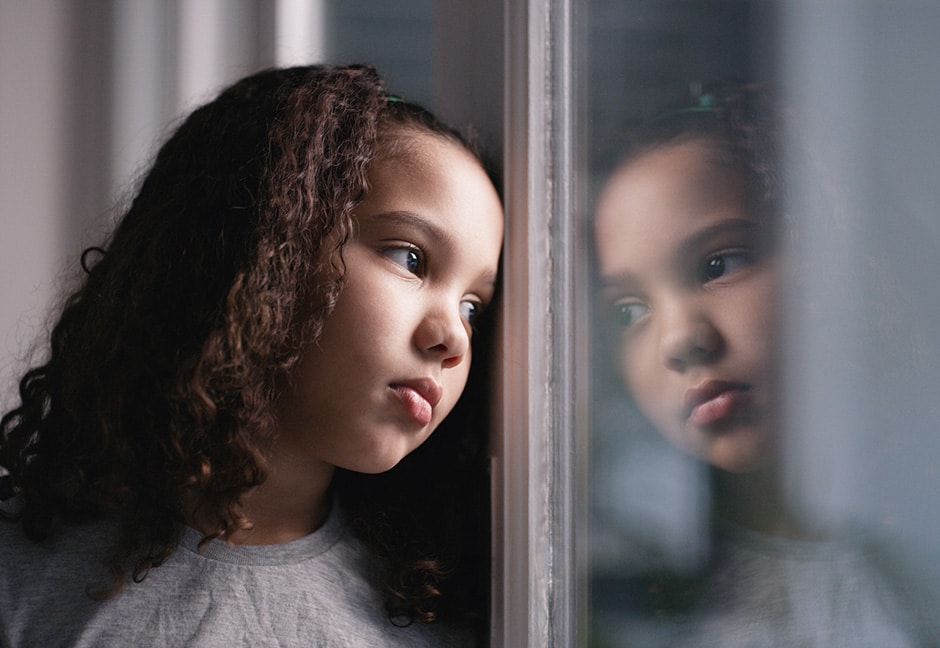What constitutes a mental health crisis in a child?
The MIND 24-7 Team | August 15, 2023
Kids are learning to manage and express their emotions, so it can be challenging to determine if they are dealing with a crisis or just having a bad day. Everyone has bad days occasionally, and it is okay not to be okay. Sometimes, additional help is needed. So, what constitutes a mental health crisis in a child? A child is having a mental health crisis when they are at risk of hurting themselves or others or are expressing emotions and behaviors that seem extreme or out of control for them. Remember, parents know their children best. If an emergency arises, seeking mental health crisis services is crucial. This guide highlights how a mental health crisis can be recognized in a child and where to go to get help.
Signs of a mental health crisis in a child may include:
A child makes threats to harm themselves or someone else
If a child is threatening to hurt themselves or someone else, action must be taken to keep everyone safe. Call 911, call a crisis line, go to the nearest emergency department or visit a local urgent psychiatric care center. Do not leave the child alone.
A child shares suicidal thoughts
If a child is expressing suicidal thoughts like “I want to die,” “I want to kill myself” or “I don’t want to be here anymore,” it is critical to get immediate care to keep the child safe. Do not leave the child alone. Here are three important resources:
- Crisis Text Line: text TALK to 741741.
- The National Suicide Prevention Lifeline: call 988.
- The Trevor Project: text START to 678-678 or call 1-866-488-7386 or chat online. The Trevor Project serves LGBTQIA+ youth.
A child expresses severe agitation or aggression
A child in a mental health crisis may display severe agitation or aggression. This may involve damage to property, hostility or other extreme behaviors. Ensure everyone’s safety and seek help immediately. Call 911, call or text a crisis line, visit the nearest emergency department or visit a local urgent psychiatric care center. Do not leave the child alone.
A child experiences hallucinations
If a child is experiencing hallucinations, they are in a sensory experience that is not based on external stimuli. They may see, hear or even feel things others cannot perceive. Hallucinations differ from imaginary play because they confuse and distress the child. They also may cause the child to demonstrate strange behaviors and interfere with daily functioning. It is important to recognize hallucinations if they are happening in a child and get help immediately.
A child experiences delusions
When a child is experiencing delusions, they hold firmly to unrealistic and false beliefs. It is more difficult than normal to persuade the child with rational arguments or evidence. They may struggle to distinguish between what is real and not real and exhibit signs of distress, anxiety and fear. If a child seems to be experiencing delusions, seek help immediately.
A child isolates themselves from family and friends
Everyone needs some quiet time to themselves, and some prefer spending more time alone than others. If a child suddenly begins to isolate themselves from friends and family beyond their usual preference for alone time, it is important to take note. A child isolating themselves may be at risk of depression, anxiety or another mental health condition that needs care.
A child loses interest in previously enjoyed activities
It’s normal for children’s interests to change periodically as they grow, learn about new things and experience the world around them. However, if a child suddenly loses interest in activities they love and do not become engaged with something else, it may be cause for concern. A loss of interest in favorite activities is a sign of depression, anxiety and other mental health conditions. With proper care, the mental health condition is treatable, and children can return to their favorite things.
MIND 24-7 mental health crisis services for children
Finding mental health care services for a child often feels overwhelming, and it is natural for parents to be concerned when their child is struggling.
At MIND 24-7, we know that with treatment, recovery is possible—and we’re on a mission to make it a reality for children and teens of all ages. From crisis emergency care to outpatient therapy services, our mental health professionals are available around the clock to ensure that every family has the help and support they need. The MIND 24-7 staff takes the time to guide families through the care process and explain each step along the way.
To get mental health care for children in minutes, visit one of our convenient locations or text/call 1-844-MIND247.
